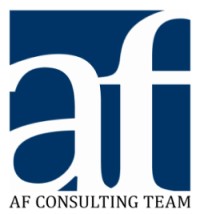This post may contain affiliate links. Read about our privacy policy.
Congratulations! You have a brand-new business! Welcome to the world of entrepreneurship…and to the world of all sorts of questions you never thought you’d have to ask yourself—like do I even need insurance?
The short answer is most likely YES! I know that when you begin a business, you are generally trying to keep expenses as low as possible as you build value and clientele, but overlooking the importance of business insurance could mean you sacrifice your success to unpredictable liability costs.
Let me first say that I hate buying insurance. I hate it. To me, it represents all that could go wrong in my business and I always focus on an abundance mindset within my work. However, my strong, negative mind always plans for the worst, which is what got me and my businesses through lawsuits, personal health issues, and even Covid. So, when I say that insurance is important and should not be overlooked, I mean it.
Depending on your business, you may need more or less insurance, so let me break down a few of the more popular types of business insurance and why you may need it:
- General Liability Insurance – This one is critical for small businesses and protects against a number of things from bodily injury, property damage, advertising harm, medical and legal fees, all VERY important to the overall health of your business. Mostly, it helps protect you from all the costs related to accidental damages made by you, your employees, your clients, or workers.
- Professional Liability Insurance – Yuck, this one is painful! Professional liability insurance protects against negligence claims, civil lawsuits, business mistakes, and even missed deadlines. You never like to call on this one, but when you need it, you definitely need it.
- Equipment and/or Tools Coverage – This you can usually add on to your general liability insurance, so check with your coverage. If you have any large equipment or tools (hello, Contractors, I’m talking to you!) you will definitely want to get this type of insurance, too. But don’t worry, it’s usually very affordable and covers damaged equipment, lost or stolen tools, or borrowed gear you break. Worth it, right?
- Commercial Property – Do you have a physical storefront? Good for you! Now insurance that baby, ASAP! Commercial Property Insurance is usually required by landlords, if you have one, and covers stolen equipment, damaged and stolen retail items, building damage (though please note not all property insurance covers all damage, like floods, fires, hurricanes, or tsunamis. Please check your policies!), equipment breakdowns, and more.
- Commercial Auto – If you have a car, then you know the importance of auto insurance for things like underinsured-motorists, property damage, towing, collisions, and rental reimbursements. If you have a shiny business vehicle, or even an old, rusty one, you may need to switch to Commercial Auto Insurance, especially if you or an employee is driving a company car. Why? Short answer: many auto policies will not cover accidents that happen while you are driving for business. Yikes!
- Workers’ Compensation – Oh man, I also hate when someone tells me I MUST carry a certain insurance! It really gets under my skin. And depending on your State, you will probably be required to carry Workers’ Compensation, even if you are your only employee! YUUUUP! I totally understand why, as this covers you and your employees for workplace injury and can cover medical treatments, lost wages, and other hefty expenses, but man, it still irks me.
- Unemployment Insurance – Sigh, another insurance you might be required to carry if you have employees. The Department of Labor says this provides unemployment benefits to workers who become unemployed through no fault of their own, but I’ve definitely had some staff quit and then claim it. No fault of their own, huh? Regardless, you might need it!
- Business Insurance – Is there a difference? I actually moderately like Business Insurance (I would be lying if I said I loved it). Some companies have this type of policy and it’s basically like an insurance “bundle” offering a little General Liability, a little Professional Liability, maybe some Commercial Auto added in…the good ones will work with you to customize your options. Rates vary wildly, depending on your profession, so a skydiving company will have a different rate than a professional dog-walker, or a voice over talent, etc. Other factors that will alter your fees are location, experience, number of employees, and the scope of what you do (for example: Are you a Yin Yoga instructor who teaches only one-on-one, or a Yin Yoga instructor who also teaches Underwater Goat Yoga and Aerial Yoga Tricks to large groups of children?). You get the idea.
Believe it or not, there are actually MORE types of insurance policies you can obtain, but these are the ones I find most common for small business owners. Now you get to choose the company and the coverage that’s right for you (oh, goody).
Some quick tips on picking an insurance company:
- Look for a policy that’s just for you. Maybe the catch-all policy is good enough, but a personalized policy will take into consideration not only your specific industry, but also your location, size, and personal experience. Moreover, it will keep you from paying for services you don’t need. For example, you can buy “Fitness Insurance,” but if you don’t teach water classes, why should you pay to cover them?
- Make sure you can afford it. You want to protect your business, but it’s a moot point if you run it into the ground before you get the chance. Many companies offer low or no deductibles and even policies you can pay monthly with no extra fees! And you should absolutely have unlimited certificates of insurance/additionally insured at no cost!
- Online or In-Person? I have had both and I could go either way. Sometimes it’s nice to have an actual person to discuss options, or to call or email when sh*t hits the fan, but you really can’t beat the convenience of online. Either way, make sure the company you choose has great Customer Service.
Good luck and good business!
Disclaimer: This post includes affiliate links, and I will earn a commission if you purchase through these links. Please note that I’ve linked to these products purely because I recommend them and they are from companies I trust. There is no additional cost to you.



